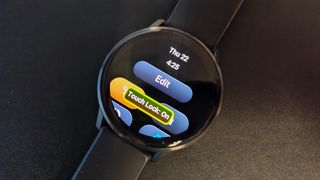How Tos
Explore How Tos
Latest about How Tos

How to watch NFL 2025: free live streams and TV channels, Divisional Championship Finals
By Adam Marshall last updated
News Who will take the Super Bowl berths? Here's how to watch NFL live in all parts of the world, including free streams and international TV channels as the AFC and NFC finals take place.

My Garmin kept accidentally calling people in the shower — here's the simple fix
By Matt Evans published
My Garmin watch has a life of its own in the shower — here's how to set up a touchscreen locking hot key.

The 10 best Minecraft shaders 2026
By Jennifer Allen last updated
Here's what I recommend for the best Minecraft shaders. Each will make your game look so much better than before.

The best Minecraft seeds of 2026
By Jennifer Allen last updated
All the best Minecraft seeds you can find, from large villager spawns, to diamond mines and submerged villages. Dig in and find your new favorite.

The 10 best Minecraft texture packs 2026
By Jennifer Allen last updated
The best Minecraft texture packs help change and improve the appearance of your game. Here's what I recommend you install.

The 10 best Minecraft servers 2026
By Jennifer Allen last updated
A look at all the best Minecraft servers you can play, including Parkour-themed servers, a visit to Westeros and much more.

So you got a new robot vacuum – here are 7 things to do first
By Ruth Hamilton published
Not sure where to start with your new robovac? Follow these 7 steps and you'll be well on your way.

49ers vs Seahawks Free Streams: How to watch NFL 2026 Divisional Round game online from anywhere
By Krishi Chowdhary published
News Here's how to watch 49ers vs Seahawks live in all parts of the world, including free streams and international TV channels.
Sign up for breaking news, reviews, opinion, top tech deals, and more.

